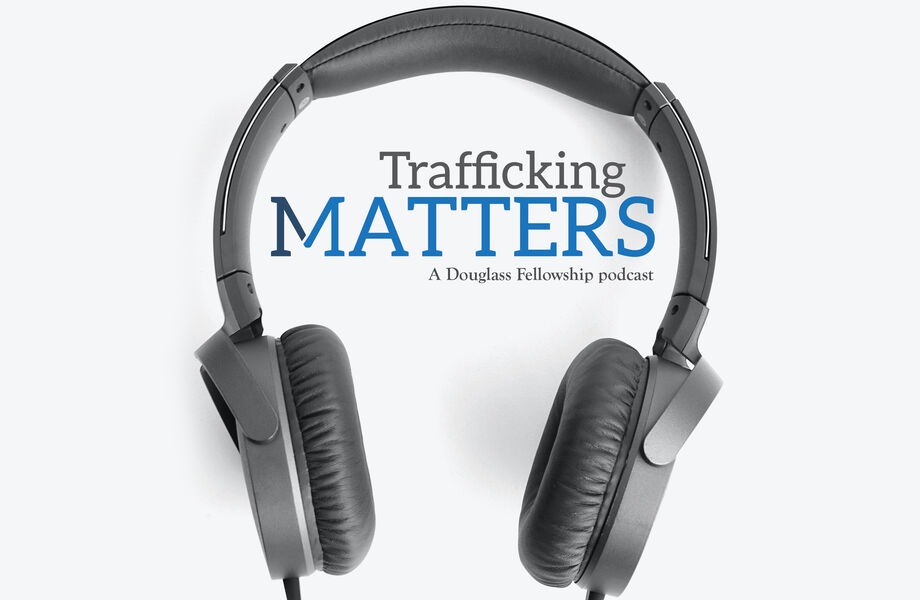By: ALANA BROE
For human trafficking victims, freedom from their trafficker does not mean the end of their harm. Victims of human trafficking endure serious abuse that may plague them for the rest of their lives. They often find themselves penniless and in need of medical care, psychological treatment, and job training when they escape their traffickers. They may also need to relocate to have a chance at a normal life following their abuse. Unfortunately, however, services to assist victims of trafficking come at a high cost. To ameliorate this problem and help victims rebuild their lives, federal law requires perpetrators to pay restitution to the victims that they exploited.
The “Eggshell Plaintiff” Rule is a tort law principle that treats and compensates victims of harm for whatever results from the harmful conduct, regardless of preexisting vulnerabilities that make the resulting injury more significant than ordinarily foreseeable. The application of this rule to human trafficking restitution will better enable victims to receive full compensation and rebuild their lives.
Federal law requires restitution for trafficking victims

Under the Mandatory Victims Restitution Act, the Trafficking Victims Protection Act, and the Mandatory Restitution for Sexual Exploitation of Children Act, restitution is mandatory for offenses that are covered by Chapter 77 of the United States Code, as well as trafficking offenses that include violence, and sexual violence offenses accompanying trafficking.1 In order to secure a restitution award, though, the prosecutor must prove that the particular victim is the proper recipient of restitution, prove the specific amount to be paid, and prove that the defendant “proximately” caused the costs incurred. “Proximate cause” is a legal term of art that the plaintiff’s attorney typically proves by showing that the harm would not have occurred “but for” the criminal conduct. Because this is an exacting standard, the Supreme Court allows some flexibility in exploitation cases, but the court still must ultimately be satisfied that the restitution costs are causally related to the trafficker’s offending conduct.2
This standard may be particularly problematic for cases where the victim had preexisting vulnerabilities. When victims needed rehabilitative services prior to their exploitation, it may be difficult to prove that the psychological services would not have been utilized “but for” the trafficker’s conduct. This scenario could arise in many cases since traffickers often prey on vulnerable victims who are easier to exploit.3
Applying the Eggshell Plaintiff Rule advances the purposes of the mandatory restitution statutes
Victims in need of psychological services following their abuse should receive restitution notwithstanding their preexisting need for these services. To address this need, judges should apply the Eggshell Plaintiff Rule, a tort law principle in which the defendant takes the victim as she is found.4 This means if the victim has a pre-existing condition such that the defendant’s conduct causes greater or different harm than expected, the defendant is liable for the entire harm.
The Eggshell Plaintiff Rule protects the rights of individuals with preexisting conditions that make them increasingly vulnerable to harm by only requiring victims to prove that the defendant was a substantial contributing factor to the harm, rather than the only harm.5 Accordingly, judges should apply the Eggshell Plaintiff Rule to trafficking cases to allow victims to receive compensation for both the psychological trauma that resulted from the trafficking and the psychological issues that made them vulnerable in the first place.
Courts have applied the Eggshell Plaintiff Rule in analogous cases
It is not a novel idea to apply the Eggshell Plaintiff Rule in contexts other than tort law. For example, this standard has successfully been applied in the context of sexual assault. In State v. Behnke, the defendant, who battered and sexually assaulted his girlfriend, argued he should not have to pay restitution for all of the victim’s losses because she suffered from mental health issues arising from abuse by her father and ex-husband.6 The court disagreed, granting restitution and holding that the defendant could not escape liability because of the victim’s “vulnerable psyche.” Likewise, in Poole v. Copland, Inc., a victim who was sexually harassed by her employer experienced Post-Traumatic Stress Disorder because it triggered a flashback of childhood assault, abuse, molestation, and domestic violence.7 The Supreme Court of North Carolina upheld liability for the full scope of injuries, relying on an Eggshell Plaintiff analysis with respect to the victim’s pre-existing mental conditions.

Courts have also applied the Eggshell Plaintiff Rule in the child prostitution context. In one case, the court held the defendant liable for the full scope of the victims’ losses because he was not a “mere causal participant” in the victim’s harm.8 The court ordered this relief over the defendant’s objection that the victims suffered from psychological issues prior to his contact with them. Similarly, in United States v. Doe, a production of child pornography case, the Ninth Circuit upheld an order of restitution for alternative education programs and vocational training for minor victims who stopped going to school altogether after their abuse and requested alternative education.9 The court acknowledged that other reasons might have contributed to the victims’ decision to drop out of school, but still found it was reasonable to conclude that the defendant’s actions were a “substantial factor in causing the ultimate loss.” The court reasoned that the defendant’s conduct did not have to be the “sole and total cause of a victim’s loss;” instead, the court must be satisfied by a preponderance of the evidence that there was “additional strain or trauma stemming from [the defendant’s] actions.”
These cases demonstrate the powerful effect that an adoption of the Eggshell Plaintiff Rule can have in areas outside of tort law, particularly in cases of sexual exploitation. The application of this rule would achieve the rehabilitative goals of restitution and better empower human trafficking survivors.
Courts have applied principles similar to the Eggshell Plaintiff Rule to trafficking cases
Although no court has explicitly applied the Eggshell Plaintiff Rule to a human trafficking case, many judges of trafficking cases appreciate and apply the model’s principles. Notably, in one Sealed Case, the court held that a defendant should not pay restitution for harm he did not cause, but “this does not mean that the defendant must be the sole cause of the harm.”10 In that case, some of the trafficking victims had preexisting mental health conditions and substance abuse problems, but the court awarded restitution relying on a psychologist’s conclusion that “there was ‘little doubt’ that the… [defendant] ‘exacerbated’ any preexisting mental health problems.”
Adopting the Eggshell Plaintiff Rule would increase judicial efficiency. Precedent supports principles that achieve the same result as the Eggshell Plaintiff Rule, but in each case, the government must provide expert testimony or other evidence to show that the trafficking conduct added to the already existing trauma to satisfy the high proximate cause requirement. The Eggshell Plaintiff Rule should be formally adopted in this line of cases to conserve government and judicial resources, prevent the need to reinvent the wheel in each case, and eliminate obstacles to granting restitution to trafficking victims. As restitution claims on behalf of trafficking victims become increasingly common, defenses to these claims will likely become increasingly creative. Prosecutors and pro bono lawyers should keep the Eggshell Plaintiff Rule in their toolkit in hopes of carving out a judicially recognized approach to protect already vulnerable victims and advance their rehabilitation.
- 1 18 U.S.C. §1593; U.S.C. §§3663A-3664.
- 2 United States v. Paroline, 572 U.S. 434 (2014).
- 3 According to a 2015 Polaris study, the top ten risk factors self-reported by survivors are child abuse and neglect, homelessness, running away from home, sexual abuse or assault, domestic violence, poverty, involvement with child welfare and/or the juvenile justice system, mental health concerns, substance abuse, and other forms of trauma. Furthermore, traffickers then employ sexual, emotional, and physical abuse, isolation, threats, and coercion to capitalize on these vulnerabilities and maintain power over the victims.
- 4 Restatement (Third) of Torts: Liability for Physical and Emotional Harm § 31, cmt. b (2010)(listing cases invoking the eggshell plaintiff rule in every state).
- 5 Id.
- 6 203 Wis. 2d 43, 47 (Wis. Ct. App. 1996).
- 7 Poole v. Copland, Inc, 348 N.C. 260 (N. Car. 1998).
- 8 United States v. Lewis, 791 F. Supp. 2d 81 (D.D.C. 2011), aff’d 702 F.3d 59 (D.C. 2012).
- 9 United States v. Doe, 488 F.3d 1154 (9th Cir 2007).
- 10 In re Sealed Case, 702 F.3d 59, 66 (D.C. Cir. 2012).




